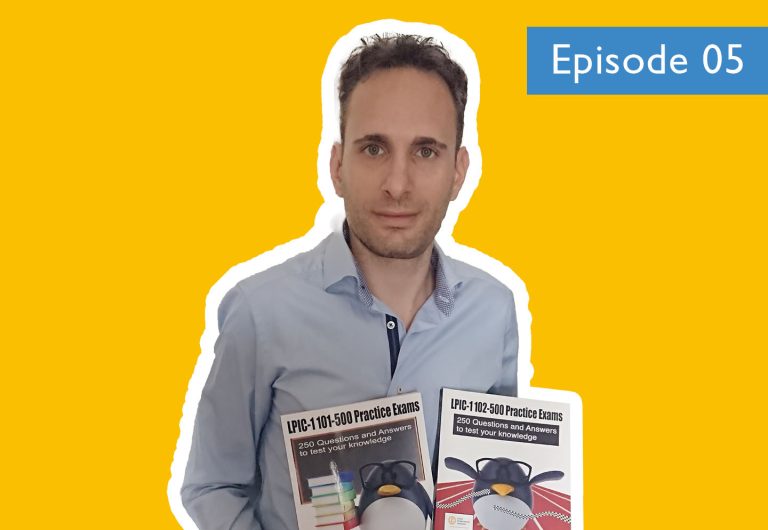The People Behind the Learning Portal: Marco Colombo, Learning Materials Author and Translator

The Linux Professional Institute (LPI) Learning Portal brings you cost-free teaching materials for teachers and students developed by Linux Professional Institute. Materials are written and translated into many different languages by members of an international community.
With this post, we get acquainted with Marco Colombo, an LPI certified professional who started his journey of developing LPI-related learning books years ago and is now part of the Learning Portal Team.
Marco, what is your academic and professional background?
I have a degree in Telecommunications Engineering, and I am currently working as a network administrator in an organization operating in higher education. I have always been a lover of technology and Linux, and I love to stay up to date, especially in the open source field. I do believe that in life you never stop learning and that you must always give the best of yourself, loving what you do.
When and how did you decide to use your skill in developing learning materials?
Immediately after earning the LPIC-1 certification.
The idea of collaborating with LPI in writing completely free educational material was undoubtedly a great way to put into practice what I learned during my certification journey, while allowing me to further hone my Linux skills. It’s “Learn by Doing”, quite literally!
While on my LPIC-1 certification journey, I started creating a series of exercises that could help me learn Linux. I decided to redesign the exercises into a series of questions and answers, perfectly matching the actual LPI exams. All that work became two, let’s call them “simulation books” for the 101-500 and 102-500 LPI exams. The books had quite a great success.
My vision behind them was to create educational material that could help anyone become an LPIC-1 certified professional. Each book consists of 250 questions and answers divided into 4 practice exams—simulating the actual exam—and 1 assessment test.
All the questions are explained step by step, so the reader can fully understand the general background to which each question refers. Now the books LPIC-1 101-500 Practice Exams and LPIC-1 102-500 Practice Exams are part of the official LPI Learning Materials too: Thank you, LPI!
What is your contribution, so far, to the Learning Portal, and what’s next for you in this project?
Working on the Learning Portal, I have designed lessons for the Linux Essentials, LPIC-1, BSD Specialist, and Web Development certifications.
In the future, I would also like to contribute to the translation of the Learning Materials into Italian. The LPI Learning Portal is indeed a fascinating and engaging project.
Being a certified professional and a learning material writer makes you aware of the two sides of the coin: From this particular point of view, what is your advice to people studying for their LPI Exams?
My advice is: “practice, practice, practice!”
Of course you need to know, but you must make skills out of that knowledge: hence, you need to practice a lot. Because once you earn your Certification, you will have to face the actual work environment, and you need to be ready for it. Just stuffing in concepts is entirely useless, so: practice, practice, practice!
And how do you advise teachers and, more broadly, people involved in the use and even the production of Linux and open source learning material?
As I said, the LPI Learning Portal is an exciting project: I take this opportunity to invite teachers and Linux and lovers of open source to come forward and collaborate in the drafting of educational material that can help others. If each of us makes our knowledge available, the community will benefit a lot, in addition to empowering the community’s individuals.
The LPI Learning Portal is a community, as you say: what is your experience so far, what tools and features do you use in the process? What can you tell us about the workflow? And what “opensourceness” can you recognize in a project about education?
The experience within the community is just brilliant. Each person who decides to collaborate is entrusted with a specific activity based on abilities and availability. The drafting, verification, and translation activities are expertly coordinated by professionals who are always ready to provide their invaluable help if needed.
Furthermore, anyone who decides to join has the opportunity to learn how to use tools such as Git and OmegaT, which are well known in the open source field. So what are you waiting for? Join us, join the huddle!
<< Read the previous post of this series | Read the next post of this series >>
